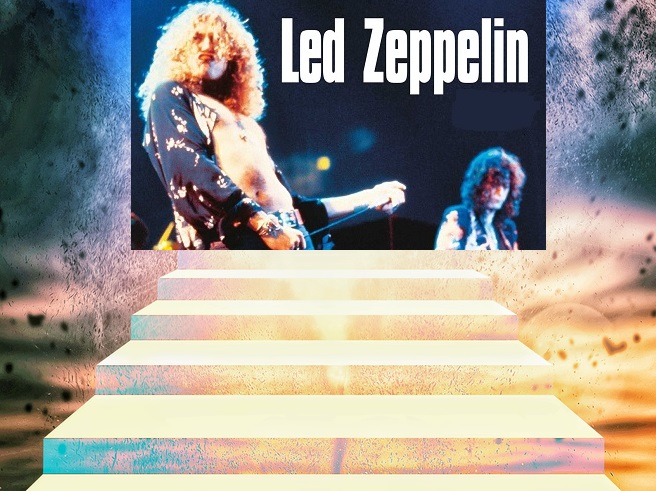Introduction
Released on November 8, 1971, “Stairway to Heaven” by Led Zeppelin stands as a monumental and enduring piece of musical artistry that has transcended generations. Composed by guitarist Jimmy Page and lead singer Robert Plant, the song represents a unique blend of rock, folk, and progressive elements, creating an unbelievable landscape that has captivated listeners for over five decades.
Musical Exploration
“Stairway to Heaven” unfolds as a musical journey, spanning more than eight minutes and divided into distinct sections. The song opens with a delicate acoustic guitar intro, gradually building in intensity. Plant’s ethereal vocals join the arrangement, delivering poetic lyrics that evoke vivid imagery. The acoustic foundation gives way to a dynamic progression, featuring Page’s iconic guitar solo, accompanied by John Bonham’s powerful drumming and John Paul Jones’ melodic bass lines. This intricate fusion of musical styles showcases the band’s exceptional talent and experimental approach.
Lyricism and Symbolism
The lyrics of “Stairway to Heaven” have sparked countless interpretations, contributing to the song’s enduring mystique. The narrative weaves a tale of a woman seeking spiritual enlightenment, caught between the material world and a higher realm. The metaphorical journey is depicted through vivid imagery, from the “lady we all know” who buys a stairway to heaven, to the iconic line “all that glitters is not gold.” The song invites listeners to contemplate deeper existential questions, making it a timeless piece that resonates on a profound level.
Cultural Impact
Upon its release, “Stairway to Heaven” faced initial skepticism from some music critics who found its length and complexity unconventional for mainstream radio. However, the song’s magnetic allure and word-of-mouth praise soon propelled it to iconic status. It became a staple on classic rock radio and an essential part of Led Zeppelin’s live performances. Its enduring popularity is evident in its continuous presence in various media, from films to television shows, cementing its place in popular culture.
Legacy and Recognition
“Stairway to Heaven” has garnered numerous accolades over the years, solidifying its status as one of the greatest rock compositions in history. Despite never being released as a single, the song’s impact has been immeasurable, earning it a place in the Grammy Hall of Fame and countless “greatest songs of all time” lists. Its enduring legacy is also reflected in its digital presence, with millions of streams and downloads, ensuring its accessibility to new generations of listeners.
Controversy and Legal Battles
The success of “Stairway to Heaven” has not been without controversy. In 2014, the estate of Randy Wolfe, a guitarist for the band Spirit, claimed that Led Zeppelin had copied the song’s iconic opening from Spirit’s instrumental track “Taurus.” The legal battle that ensued culminated in a 2016 trial, where the jury ruled in favor of Led Zeppelin, stating that while the two songs shared a descending chromatic scale, they were not substantially similar. This legal victory preserved the song’s integrity and reinforced its originality. It seems that this lawsuit lends weight there possibly being some truth to the old saying that “No matter what you do in life, if it is successful enough, someone may try to covet it.”
Conclusion
“Stairway to Heaven” remains an enduring masterpiece that transcends the boundaries of time and genre. Its multifaceted composition, thought-provoking lyrics, and cultural impact have solidified its place in the pantheon of musical greatness. As we continue to traverse the stairway to the future, Led Zeppelin’s iconic creation stands as a testament to the timeless power of artistic expression and the enduring resonance of a musical journey that began in 1971


Get involved!
Comments